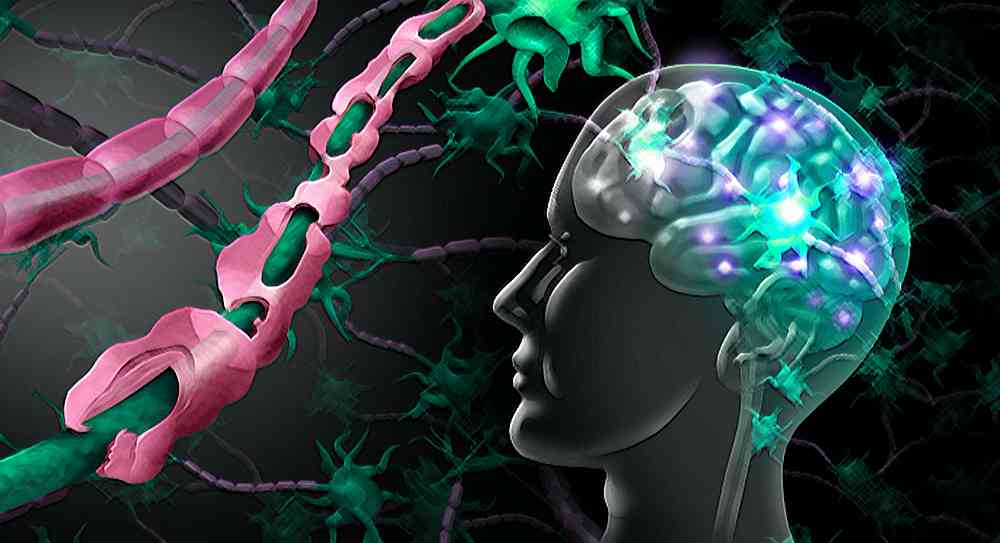
The human nervous system is a complex and vital network that coordinates and controls various bodily functions. However, this intricate system is susceptible to a wide array of diseases and disorders that can significantly impact a person's quality of life. From mild headaches to severe neurological conditions, diseases of the nervous system demand prompt diagnosis and appropriate treatment. This article delves into the diagnosis and treatment of nervous system diseases, with a specific focus on headache management.
Understanding Diseases of the Nervous System
The nervous system comprises the brain, spinal cord, and nerves, all working together to transmit signals and regulate bodily functions. When this intricate system is affected by diseases, it can lead to a range of symptoms, such as pain, altered sensation, muscle weakness, and impaired cognitive functions.
Some common diseases of the nervous system include:
-
Migraines and Headaches: Headaches are one of the most prevalent nervous system disorders. They can vary in intensity and frequency, impacting millions of people worldwide. Migraines, in particular, are characterized by severe throbbing pain, usually on one side of the head, and are often accompanied by nausea, sensitivity to light and sound, and visual disturbances.
-
Multiple Sclerosis (MS): MS is an autoimmune disease that affects the central nervous system, causing inflammation and damage to the myelin sheath, the protective covering of nerve fibers. This results in communication issues between the brain and the rest of the body, leading to a wide range of symptoms, including fatigue, muscle weakness, and impaired coordination.
-
Alzheimer's Disease: Alzheimer's is a progressive neurodegenerative disorder that primarily affects memory and cognitive functions. As the disease advances, individuals may experience difficulties with language, decision-making, and daily tasks.
For the detailed information about the variuos types of nervous system-related diseases, check also NeurologyInterpreter.com.
Diagnosis of Diseases of the Nervous System
Accurate diagnosis is crucial for effective treatment and management of nervous system diseases. Healthcare professionals utilize various techniques and tools to diagnose these conditions.
Medical History and Physical Examination
The first step in diagnosing a nervous system disorder involves a comprehensive medical history review and a physical examination. The doctor will inquire about the patient's symptoms, family medical history, and any past medical conditions that might be relevant.
Imaging Studies
Advanced imaging technologies, such as Magnetic Resonance Imaging (MRI) and Computed Tomography (CT) scans, allow doctors to visualize the brain and spinal cord in detail. These imaging studies can reveal abnormalities, such as tumors, lesions, or structural changes, aiding in the diagnosis.
Electroencephalogram (EEG)
An EEG is a non-invasive test that records the electrical activity of the brain through electrodes placed on the scalp. It is commonly used to diagnose epilepsy and other seizure disorders.
Lumbar Puncture
Also known as a spinal tap, this procedure involves the removal of cerebrospinal fluid (CSF) from the spinal canal. Analysis of the CSF can help identify infections, bleeding, and other abnormalities.
Blood Tests
Blood tests can be useful in diagnosing certain nervous system disorders, such as infections, autoimmune diseases, and metabolic disorders.
It's important to note that the specific diagnostic approach will vary depending on the patient's symptoms, medical history, and suspected condition.
Headache Treatment: Finding Relief
Headaches, while common, can still be debilitating and interfere with daily life. Finding an appropriate treatment plan is essential for headache management. The approach to treatment may depend on the type and severity of the headache, as well as individual patient factors. Here are some common headache treatments:
-
Over-the-Counter (OTC) Pain Relievers: For mild to moderate headaches, OTC pain relievers like acetaminophen, ibuprofen, or aspirin can provide relief. However, their long-term use should be monitored, as excessive consumption may lead to medication overuse headaches.
-
Prescription Medications: For more severe or chronic headaches, a doctor may prescribe specific medications, such as triptans for migraines or beta-blockers for tension headaches.
-
Lifestyle Modifications: Identifying and avoiding triggers can help prevent headaches. Common triggers include stress, lack of sleep, certain foods, and excessive caffeine consumption.
-
Biofeedback and Relaxation Techniques: Biofeedback and relaxation techniques, such as meditation or deep breathing exercises, can help manage headache symptoms by reducing stress and promoting relaxation.
-
Physical Therapy: In some cases, physical therapy can be beneficial, especially for tension headaches caused by muscle tension and poor posture.
-
Alternative Therapies: Some individuals find relief through alternative therapies like acupuncture, chiropractic care, or herbal supplements. However, it is essential to consult with a healthcare professional before trying any alternative treatment.
Conclusion
Diseases of the nervous system encompass a wide range of conditions that can profoundly impact a person's health and well-being. Prompt and accurate diagnosis is crucial for effective management. If you experience persistent or severe headaches or any other neurological symptoms, it's essential to seek medical attention promptly.
By understanding the underlying causes and employing appropriate treatments, individuals suffering from nervous system diseases can find relief and improve their overall quality of life.
References
-
Mayo Clinic. (n.d.). Diseases and Conditions: Headache. https://www.mayoclinic.org/diseases-conditions/headache/symptoms-causes/syc-20372683
-
National Institute of Neurological Disorders and Stroke. (2021). Nervous System Diseases Information Page. https://www.ninds.nih.gov/Disorders/All-Disorders/Nervous-System-Diseases-Information-Page

Written by Michael Zippo
Michael Zippo, passionate Webmaster and Publisher, stands out for his versatility in online dissemination. Through his blog, he explores topics ranging from celebrity net worth to business dynamics, the economy, and developments in IT and programming. His professional presence on LinkedIn - https://www.linkedin.com/in/michael-zippo-9136441b1/ - is a reflection of his dedication to the industry, while managing platforms such as EmergeSocial.NET and theworldtimes.org highlights his expertise in creating informative and timely content. Involved in significant projects such as python.engineering, Michael offers a unique experience in the digital world, inviting the public to explore the many facets online with him.
